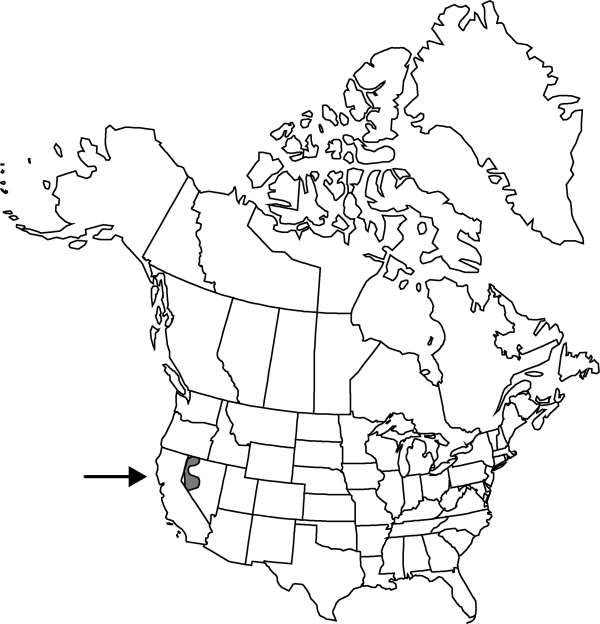familyChenopodiaceae
genusAtriplex
subgenusAtriplex subg. Obione
sectionAtriplex sect. Phyllostegiae
speciesAtriplex phyllostegia
Difference between revisions of "Atriplex phyllostegia"
Proc. Amer. Acad. Arts 9: 108. 1874.
Common names: Truckee orach
Basionym: Obione phyllostegia Torrey ex S. Watson
Synonyms: Atriplex draconis M. E. Jones Atriplex phyllostegia var. draconis (M. E. Jones) Fosberg
FNA>Volume Importer |
FNA>Volume Importer |
||
| Line 15: | Line 15: | ||
|name=Atriplex draconis | |name=Atriplex draconis | ||
|authority=M. E. Jones | |authority=M. E. Jones | ||
| − | }}{{Treatment/ID/Synonym | + | }} {{Treatment/ID/Synonym |
|name=Atriplex phyllostegia var. draconis | |name=Atriplex phyllostegia var. draconis | ||
|authority=(M. E. Jones) Fosberg | |authority=(M. E. Jones) Fosberg | ||
| Line 56: | Line 56: | ||
|publication year=1874 | |publication year=1874 | ||
|special status= | |special status= | ||
| − | |source xml=https://jpend@bitbucket.org/aafc-mbb/fna-data-curation.git/src/ | + | |source xml=https://jpend@bitbucket.org/aafc-mbb/fna-data-curation.git/src/8f726806613d60c220dc4493de13607dd3150896/coarse_grained_fna_xml/V4/V4_723.xml |
|genus=Atriplex | |genus=Atriplex | ||
|subgenus=Atriplex subg. Obione | |subgenus=Atriplex subg. Obione | ||
Revision as of 17:30, 18 September 2019
Herbs monoecious (or entirely pistillate), erect, much-branched, rounded, bushy, 0.5–6 dm. Stems mostly ascending, terete. Leaves: petiole 0.3–2 cm; blade 10–50 × 5–25 mm, base varying from shortly hastate to truncate or cuneate. Staminate flowers in small to moderate, axillary glomerules near ends of branches, or in bracteate terminal spikes. Pistillate flowers in axillary clusters. Fruiting bracteoles lanceolate or oblong, 5–14(–20) mm, sharply lobed to tuberculate at base, also often sharply cristate below usually attenuate apical lobe; tips widely recurved-spreading. Seeds brown, 1.2 mm.
Phenology: Flowering Apr–Aug.
Habitat: Valley bottoms, silty or clay, less commonly, sandy alluvium with greasewood
Elevation: 1200-1500 m
Discussion
Selected References
None.
Lower Taxa
None.

